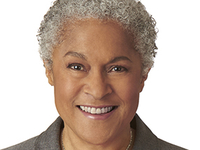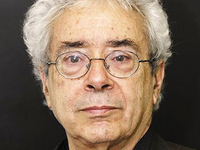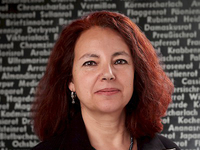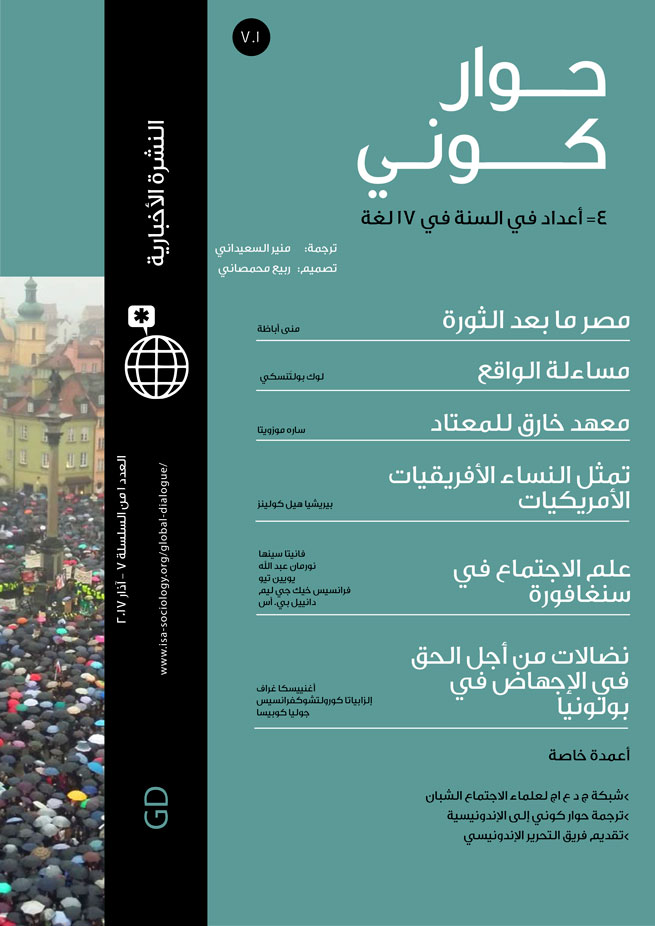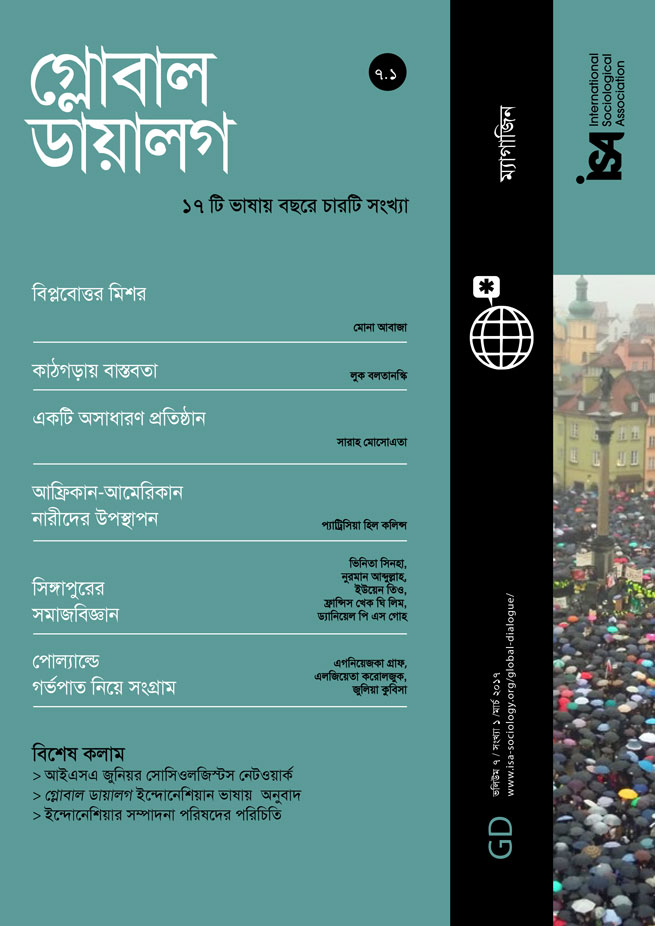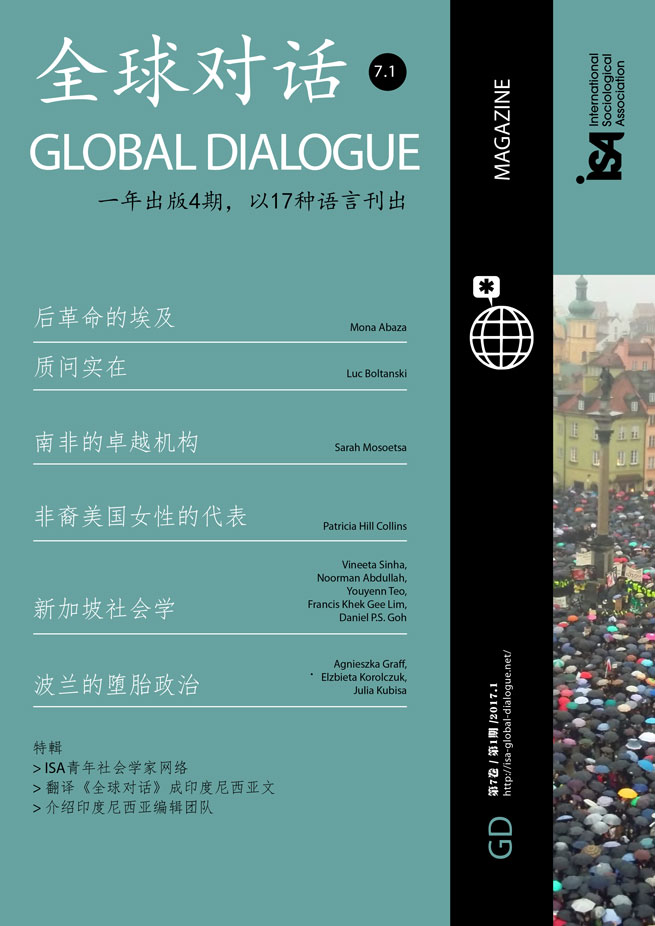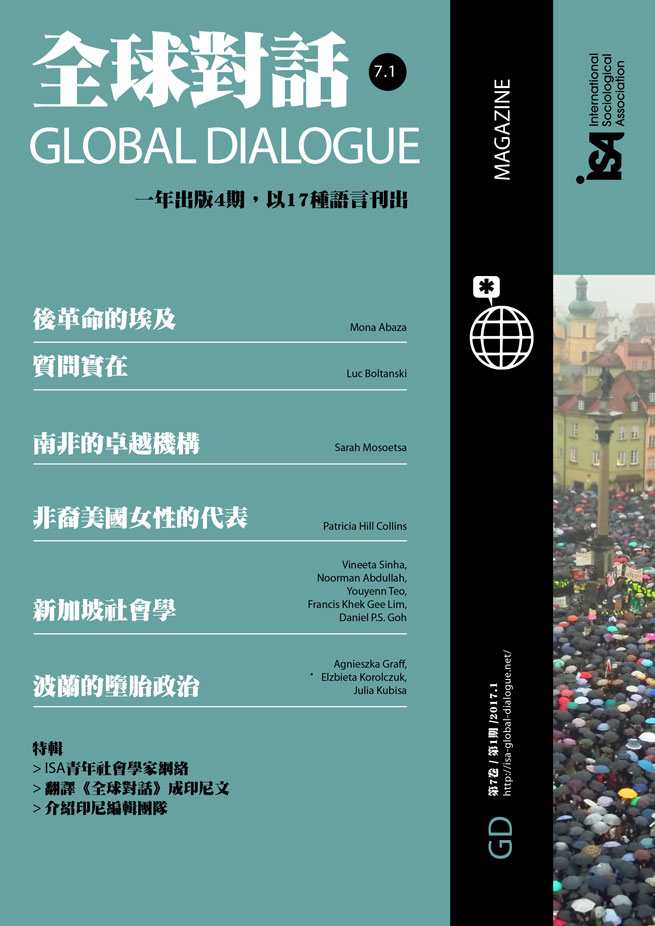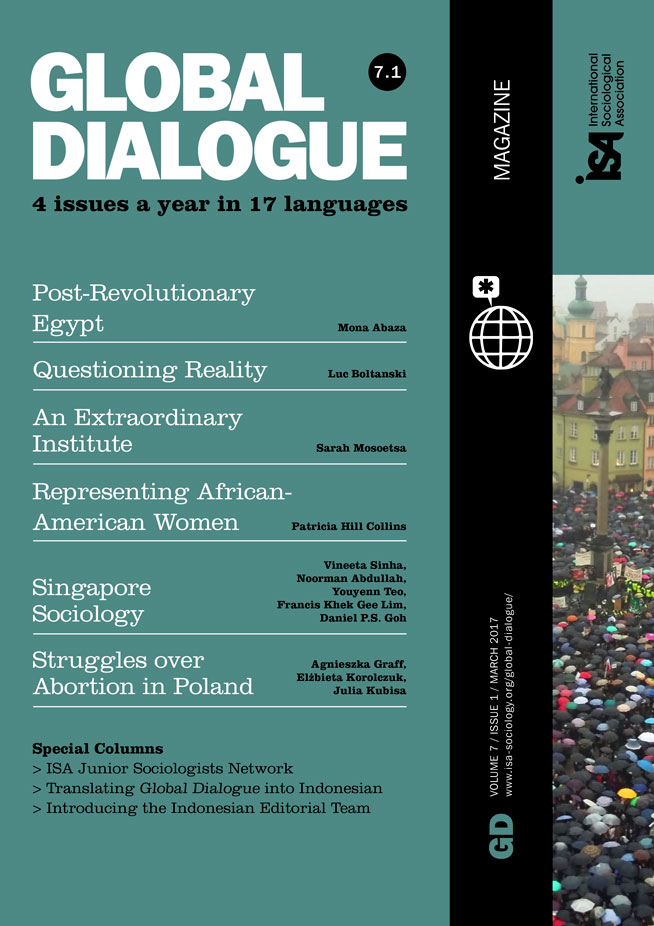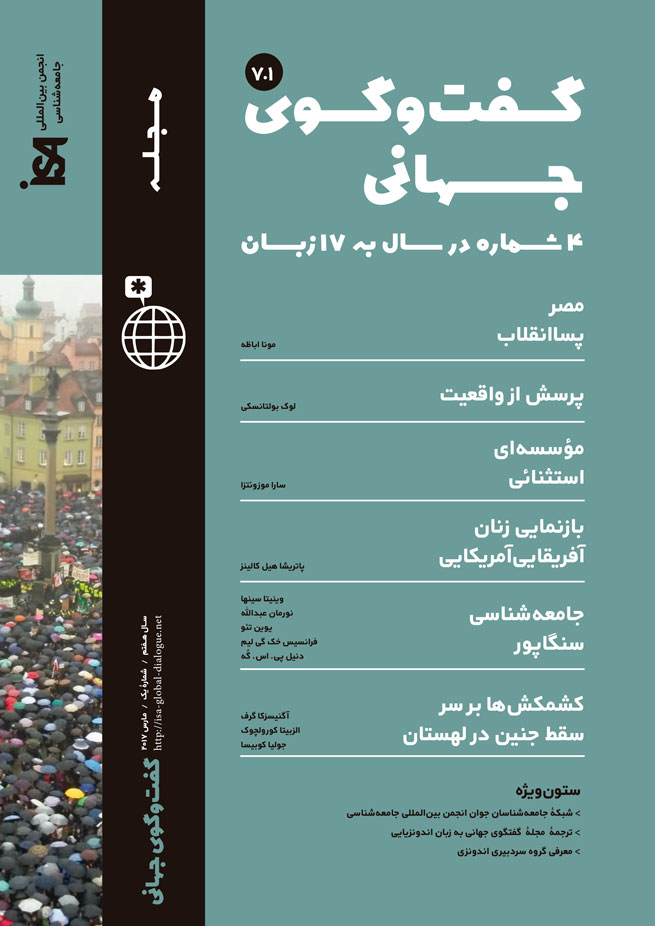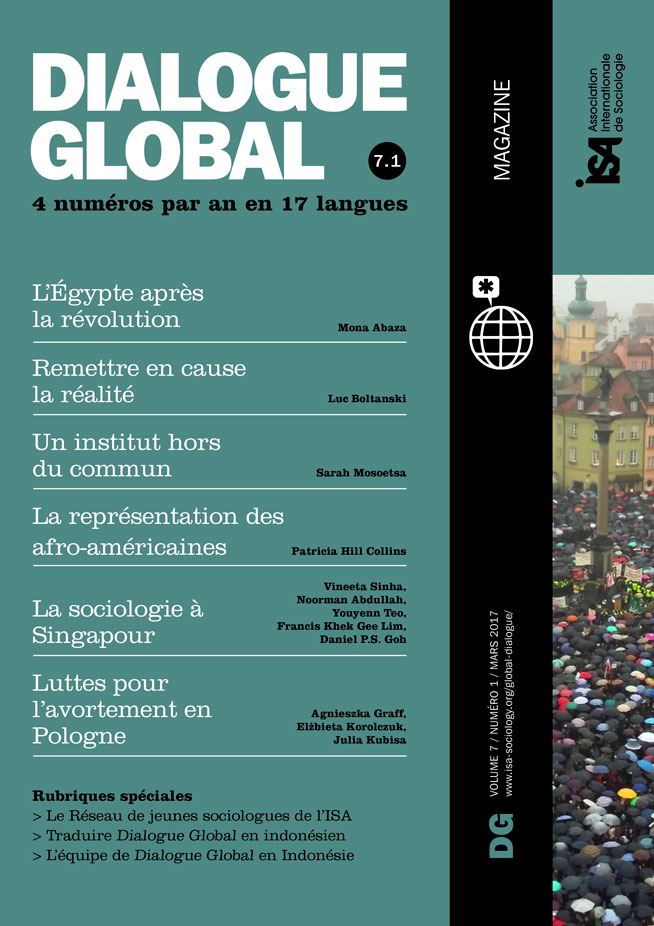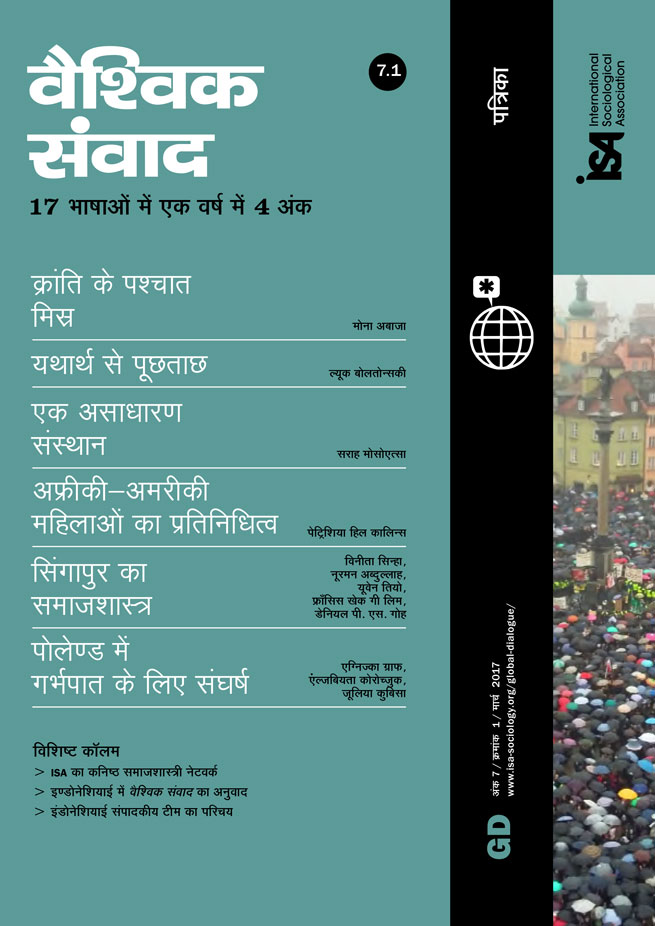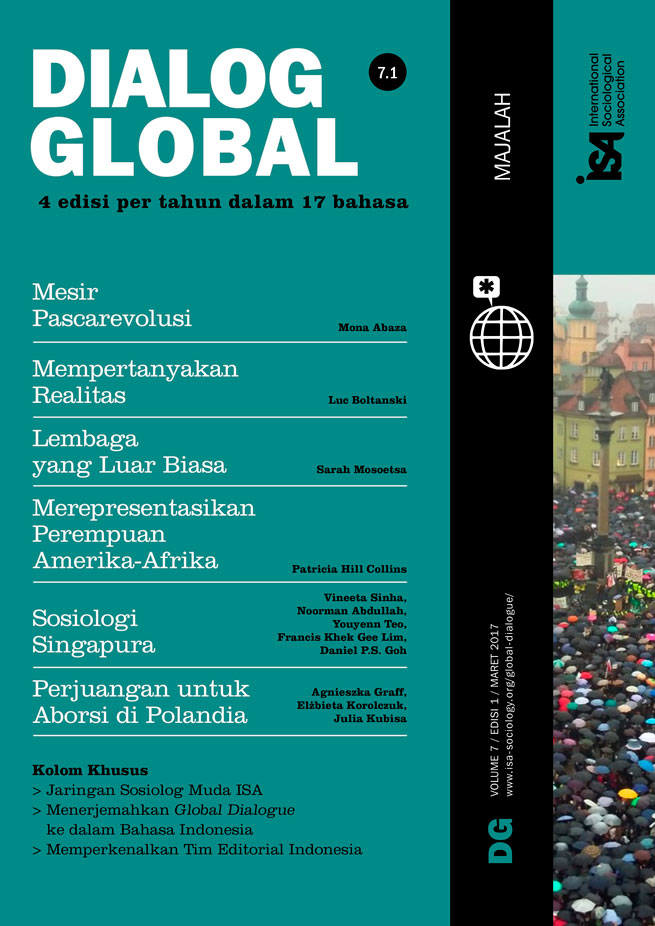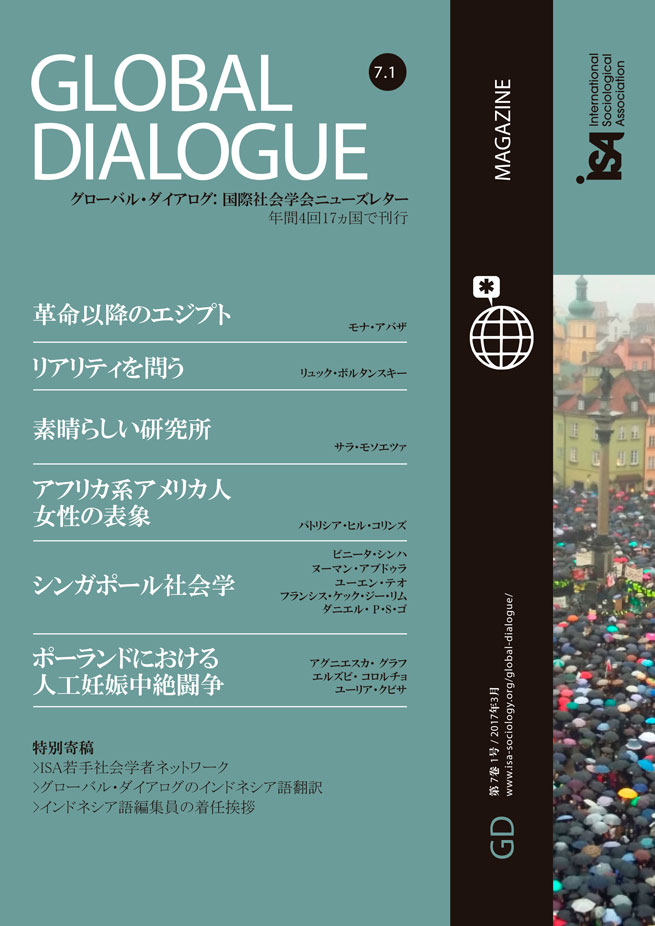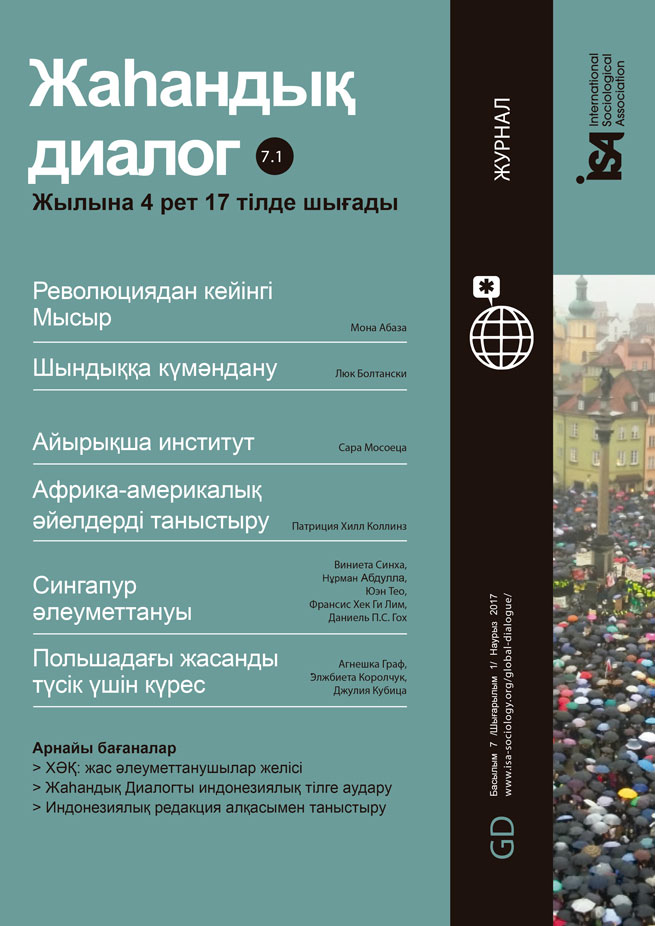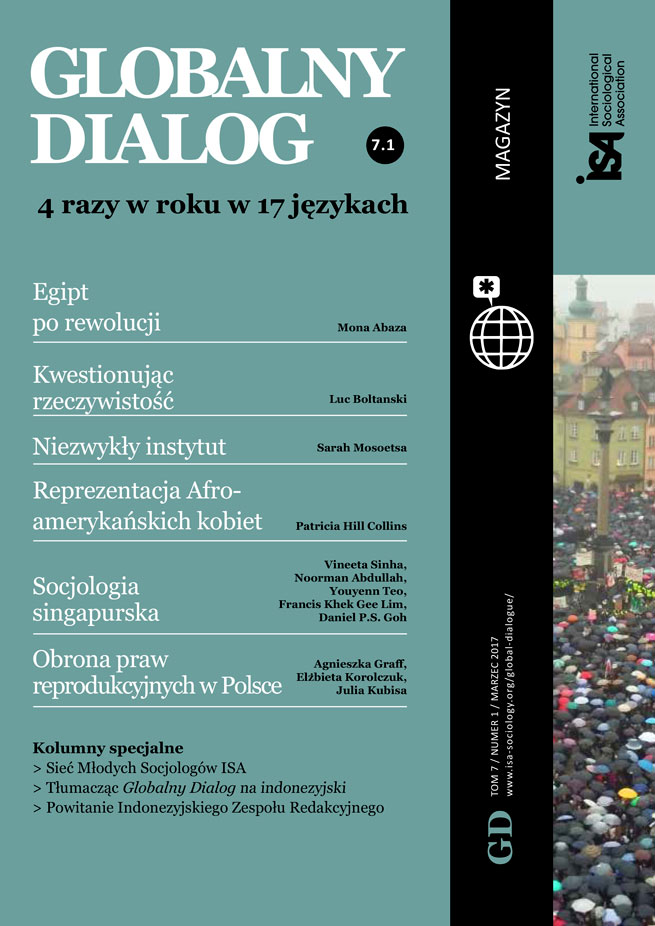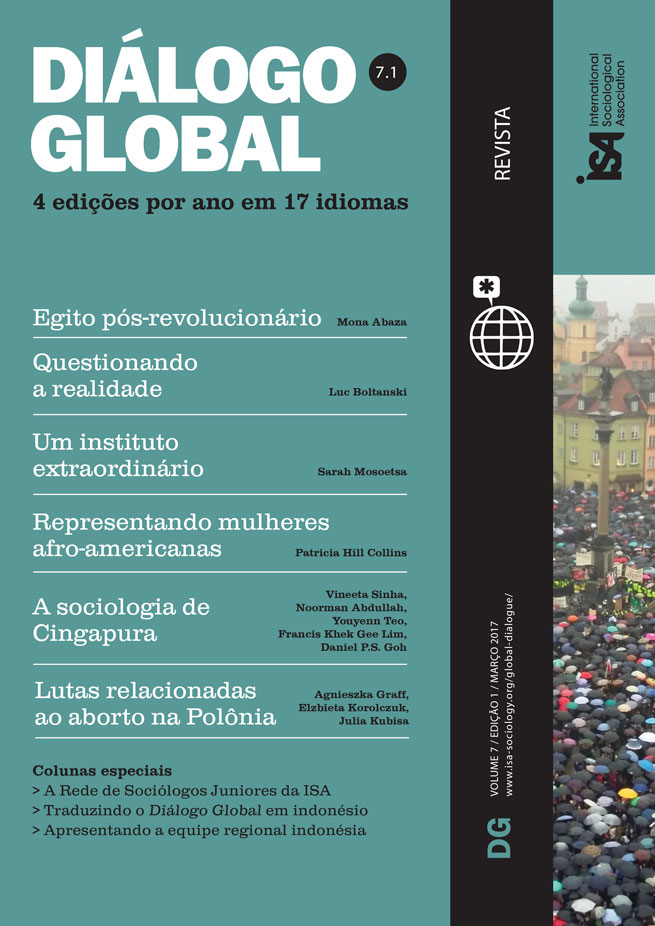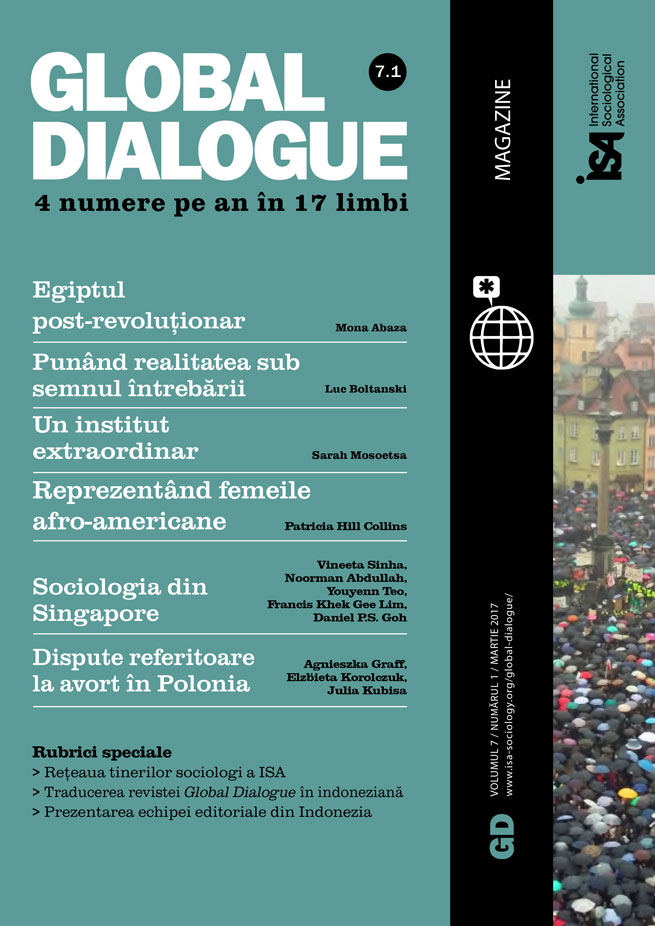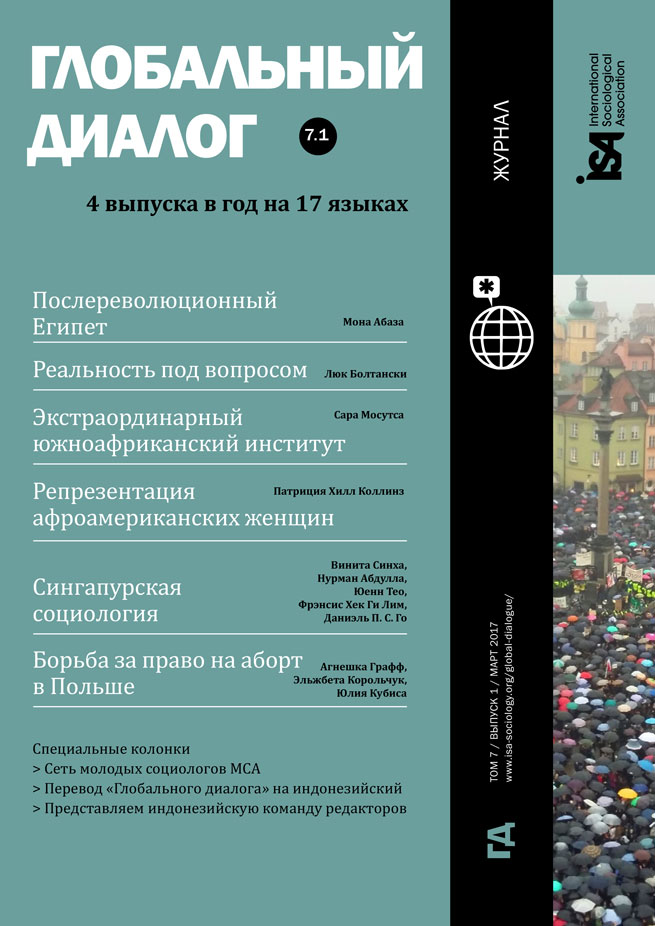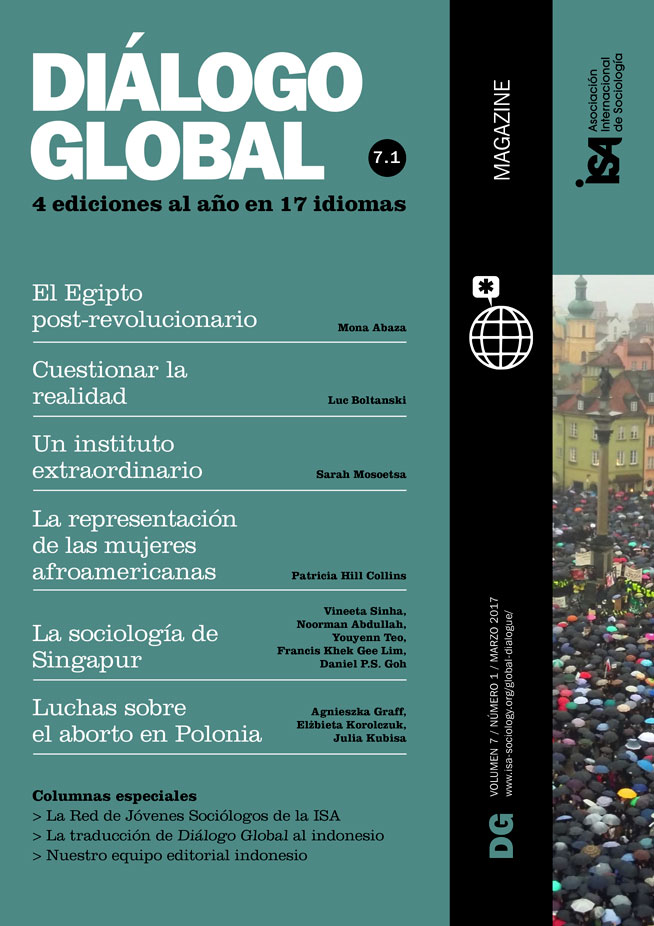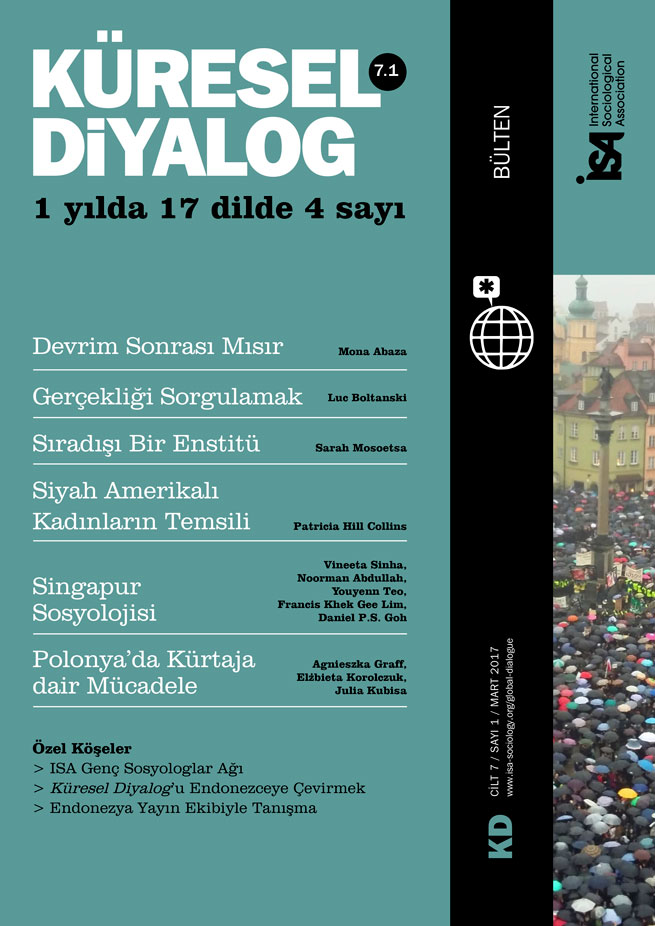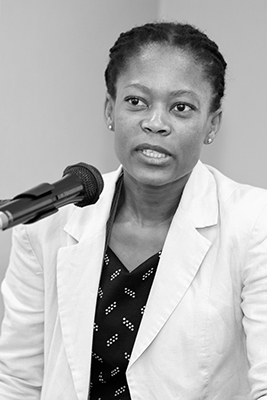South African universities have faced enormous challenges in overcoming the legacies of apartheid. We witnessed just how deep and complex are those legacies in recent student movements – #RhodesMustFall and #FeesMustFall – but they should not detract from novel experiments taking place in South African higher education. Among these the National Institute of the Humanities and Social Sciences (NIHSS) stands out as especially successful. In its scope and ambition NIHSS is unique in the whole of Africa. Funded by the Department of Higher Education and Training, it has been busy cultivating the next generation of university faculty by sponsoring hundreds of PhD students, disseminating important scholarship to wider publics, and promoting dialogue about South Africa’s past and future. The Institute is directed and inspired by Sarah Mosoetsa, a Professor of Sociology at the University of Witwatersrand. She is the author of the widely acclaimed Eating from One Pot (2012) – an account of family survival strategies in the face of plant closures. Here, she is interviewed by Michelle Williams, her colleague at the University of Witwatersrand, on the challenges and accomplishments of NIHSS.
MW: Tell us about the origins of NIHSS.
SM: Perhaps let me start with the historical context. In 2010 I was approached by Professor Ari Sitas and Dr. Bonginkosi Nzimande, the Minister of the Department of Higher Education and Training (DHET), to form part of a two-person task team to investigate the state of the humanities and social sciences (HSS) in our higher education system. The Minister was concerned that the humanities and social sciences had been relegated in favor of the STEM [science, technology, engineering, and mathematics] disciplines. The impression was that the humanities and social sciences were not at the forefront of national transformation. The task team’s mandate was broad and it involved a fact-finding mission based on conversations with academics around the country. Professor Sitas was the Director, and I served as his deputy. As the Ministerial task team, we visited all universities and engaged with academics, deans, heads of schools and departments about the humanities and social sciences. What we learned was revealing. While the natural sciences are important, their growth took place at the expense of the humanities and social sciences. It became clear that higher education was split in two. But we also learned fascinating stories about successes in the humanities and social sciences.
MW: So this was the origin of the Institute?
SM: Yes. The task team produced a report, “Charter for Humanities and Social Sciences,” which outlined the challenges, and importantly how humanities and social sciences could be re-ignited and given new energy. The Charter recommended setting up the National Institute of the Humanities and Social Sciences (NIHSS). The Minister adopted the Charter, and we immediately began work on setting up the NIHSS, which was formally established in December, 2013. Following the appointment of the Board, I was asked to be the acting CEO in May 2014. So then, together with the Board, I began planning the Institute, deciding on the core programs and so on.
MW: I know the NIHSS has a variety of programs. Can you tell us about them?
SM: There are actually seven main programs. Let me start with the Doctoral Scholarship Program, which is at the core of the Institute. Each year we award 150 three-year scholarships to South African nationals registered for a PhD. In awarding scholarships we work closely with the Humanities’ Deans at all South African public universities. Deans make recommendations for scholarships by providing us with a list of students they would like to be funded (based on their own internal adjudication processes), and, using its own criteria, NIHSS funds students from the Deans’ lists. It is a transparent process starting with an annual call for proposals to students at all universities. The recipients are 80% black South Africans and 60% women. By the end of 2016, 451 PhD scholarships had been awarded. In addition, there were 111 scholarships for non-South African nationals from the African continent.
MW: That’s interesting. So you are also funding students from other parts of Africa?
SM: Yes, we have a special African Pathways Programme (APP), based on the recognition that South Africa accepts a lot of PhD students from across the continent. Through APP we offer annually 37 three-year scholarships. The idea is to look to the rest of our continent for inspiration, while working together to grow and energize the NIHSS. We specifically wanted to move beyond historical legacies and promote more collaboration with our continental counterparts.
MW: Can you say more about this collaboration?
SM: As a young Institute, we needed to work with other entities on the continent, most of whom had never experimented with something like NIHSS. So we identified the Council for the Development of Social Science Research in Africa (CODESRIA) as a partner to help select students and to develop collaborative work on the continent. The partnership is flourishing.
NIHSS also initiated the African Pathways Mobility. It is inspired by the European Erasmus Mundus model, but with a South African flavor. This initiative encourages staff and students to explore the continent in order to find new ideas and areas of research on the continent. We fund research trips to help develop new contacts, establish research networks, as well as pursue teaching and research collaboration.
MW: To return to South Africa, was there a problem finding so many PhD students?
SM: That’s a good question. Indeed, for our first two years (2013-5), we had to show there were students to be funded and that we could actually get them into the funding system. Now our focus is to ensure the quality of the students we sponsor and that they actually finish their degrees. In South Africa we have an attrition rate similar to our students in international programs, where only about 50% get a PhD. So we developed a Mentorship Program to try to ensure better throughput.
MW: That sounds very important, can you tell us more about this mentorship program?
SM: Twenty-one current and retired professors have been appointed to work with students in different provinces. For example, in the Western Cape we have created a regional doctoral school with two mentors. The mentors engage students regularly, providing guidance and a sense of community. They offer workshops that are broad and holistic and cover issues of methodology, theory and writing. Mentors are the anchors and they share their wealth of experience, but students also learn from each other. We view peer learning as vital. Doing a PhD is a very lonely process, this program helps create a cohort and sense of solidarity among students. The mentors have been incredibly generous and give a great deal of themselves to help the transformation process in our universities. We have been able to tap the skills and experience of Emeriti Professors, thereby also giving them the opportunity to be part of the transformation process.
MW: Does the NIHSS promote research beyond support for PhD students?
SM: Yes, indeed, we have what we call the Catalytic Research Program that funds innovative and cutting-edge research, encouraging scholars to go beyond the same old research questions/projects and to explore new ways of thinking, new methodologies and new networks. Such projects may not ordinarily receive funding from traditional funders, whereas NIHSS supports research that falls outside the box. We also recognize that scholars in the humanities and social sciences write books, but mainstream funders prefer journal projects. Through our catalytic programs, we also support research by Honors and Masters students.
MW: Such research that’s conducted “outside the box,” may have difficulty in finding publishing outlets. Are you able to help out in this regard too?
SM: As I’ve said, we fund, initiate and collaborate on projects that aren’t just about research and PhD scholarships. We realize that some great work doesn’t get published because publishers find the work very good, but “not financially viable.” The Institute does not tell publishers what to publish, but we do support manuscript publication that resonates with our mandate. It still has to go through the publishers’ rigorous peer-review processes, but we subsidize the publishing costs either by guaranteeing to buy a number of books or directly contributing to the funding of the production process. We also fund publications that derive from conferences.
One of the initiatives I’m most proud of is the national book and creativity award for the humanities and social sciences, which had its first awards in March 2016. We gave six awards for a variety of works: the best non-fiction and fiction books, edited volumes, digital media as well as art. The awards are only open to academics based in South African universities. The first awards were for books published in 2013 and 2014 and we were overwhelmed with the number of submissions, demonstrating that our humanities and social sciences are, indeed, flourishing. We will have another set of awards in March 2017.
MW: South Africa has had a long history of academics engaged in public affairs. Have you any plans for encouraging scholars to take their ideas and research into the public sphere?
SM: Actually, we have something called the Humanities Hub Program, which sponsors research outside of normal academic spaces and cultivates unconventional places for generating knowledge. We are piloting it at Liliesleaf Farm, which is rich with history, having been the location for the underground liberation movement in the 1960s and where the Rivonia trialists were caught. It is a sad reality that many academics and students don’t know about this space. This project turns such heritage sites into repositories of knowledge and ways of thinking differently about historical events. As part of this, Liliesleaf Farm hosts a colloquium centered on the Freedom Charter, offering a platform for different perspectives on history and promoting conversations among academics, practitioners, and others. As you say, we know from the liberation movement that great ideas can spring from the engagement of academics with lay intellectuals.
MW: Can you give us some examples of these ventures into the public sphere?
SM: Our “humanities hubs” aim to get school children interested in the humanities and social sciences. For example, high-school kids were bussed to Liliesleaf Farm to expose them to the history on display there. This is a new way of teaching and of exposing students to our history. But not everyone can come to Liliesleaf Farm, so we developed a mobile exhibition taking a “mini Liliesleaf” to other sites such as the University of South Africa, University of Venda, and University of Limpopo.
This is a novel way to tell the story of the humanities and social sciences to ourselves as well as to the rest of world. It allows different dialogues around history, about ourselves, and about the Freedom Charter. We developed a Freedom Charter table with a suggestion box. We ask people two things: i) If you were to rewrite the Freedom Charter what would you include? And ii) Which clause of the Freedom Charter do you hold most dear? People have been writing amazing things. And many issues are coming up, ones around unemployment, poverty, and so on. Liliesleaf was a pilot project and we are planning to roll out similar “humanities hubs” in other places.
MW: Does your institute have any international programs?
SM: Through our South-South network we have initiated and are funding an India-South Africa research program in partnership with the Indian Council for Social Sciences Research (ICSSR). We are exploring similar research partnerships with Brazil and other countries.
We also coordinate the South African think tank for BRICS – the association of the five major emerging economies: Brazil, Russia, India, China and South Africa. There are different divisions – business, academic, civil society – and we organize the academic division, which includes coordinating academic forums with the five countries, followed by the annual BRICS Council and Summit. This year the academic forum is hosted in China, and in 2018 South Africa will host it. This initiative focuses on policy work and advising government. The main themes for the academic forum vary (e.g., social security, health, education, energy) and are determined by the host country. The forums inform the BRICS summit and provide policy advice to the heads of states in the five countries. We see this as an important area that creates a close interface between academics and policy making.
MW: I find it amazing how much you have accomplished in such a short time. What have been some of your biggest challenges?
SM: I think we have come a long way. The Institute is only three years old and already we have accomplished a great deal. It has been fully funded by the Department of Higher Education and Training (DHET), but working within a government department was an enormous challenge. All along we relied on key champions in DHET who pushed things through the bureaucracy. Without their support we couldn’t have achieved anything. It’s also been a very collective process, working closely with the NIHSS Board.
In the beginning we faced opposition from some academics and universities, who feared that we would replace existing entities, divert funds from universities, and that it would give the Minister of Higher Education control over the humanities and social sciences. All of these concerns were acknowledged and addressed, and many of our early critics are now our biggest supporters. NIHSS is a legal entity accountable to an independent Board. We were very clear that the Institute would not compete with existing entities, but rather would complement their work.
Some of the day-to-day challenges relate to the simple functioning of our programs. We are still setting up internal systems. For instance, we are experimenting with a new app for the mentorship program to facilitate communication among mentors and students. We have learned a lot as a young organization. I think it takes three to five years to really set up and get systems in place. We are pleased by what we have already accomplished.
MW: What is the future of NIHSS?
SM: I think it’s amazing that in such a short period of time we have managed to make NIHSS something real. The Minister has been an important part of this, but he is not the only one. The Minister’s support made it possible for the Institute to flourish. He actually reads our documents, engages us, challenges, and supports us. This has been a huge boon for the NIHSS. Some have wondered what will happen if the Minister goes. Politics are fluid everywhere and this is a concern, but we are working hard to establish ourselves and prove our enduring worth by doing a great job. We have secure funding through 2019/20. In this time we hope to graduate at least 300 doctoral students, host at least four award cycles, and financially support the publication of at least 40 books. If this is accomplished, then we’ve done our job. We will have done more than any other entity in such a short space of time.
I am pleased, humbled, and excited about how humanities and social sciences in South Africa have embraced the Institute. I have been pleasantly surprised by the responses of academics to our many requests for reviewing proposals, to act as judges, to mentor doctoral students, etc. Not one person has turned us down. The academic community sees us as a major asset.
Sarah Mosoetsa <mosoetsa@nihss.ac.za>
Michelle Williams <Michelle.Williams@wits.ac.za>
